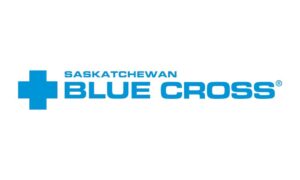How do I contact Lynn Good?
How do I contact Lynn Good?
Lynn Good Email Address @cinergy.com. @boeing.com. @duke-energy.com.
When did Spectra Energy spin-off from Duke Energy?
January 3, 2007 On January 3, 2007, Duke Energy completed the spin-off of its natural gas business, including Westcoast Energy and Union Gas, to form Spectra Energy. Duke Energy shareholders received 1 share of Spectra Energy for every 2 shares of Duke Energy.
Does Duke own Enbridge?
Duke Energy Corporation did not retain any equity ownership interests in Spectra Energy Corp (now Enbridge Inc.) in connection with its spin-off of Spectra Energy Corp on January 2, 2007. Mar 30, 2017
Is Duk a buy or sell?
For example, a stock trading at $35 with earnings of $3 would have an earnings yield of 0.0857 or 8.57%. A yield of 8.57% also means 8.57 cents of earnings for $1 of investment. … Momentum Scorecard. More Info. Zacks Rank Definition Annualized Return 1 Strong Buy 24.93% 2 Buy 18.44% 3 Hold 9.99% 4 Sell 5.61% 2 more rows
Where does Duke Energy get its power from?
Oil & Gas Electricity Duke Energy operates a system of generating plants fueled by oil or natural gas, including combustion turbines, combined-cycle units and oil-fired units.
Is Xcel investor-owned?
Xcel Energy is one of the fastest growing investor-owned transmission systems with more than 20,000 miles of transmission lines and more than 1,200 substations across 10 states, serving 22,000 megawatts of customer load.
How many coal plants does Duke Energy have?
An S&P Global Market Intelligence analysis shows Duke Energy operates about 9,000 MW of coal-fired generation in the Carolinas. The 2,462-MW Roxboro, 2,220-MW Belews Creek and 2,078-MW Marshall coal plants are in North Carolina and are among Duke Energy’s 10 largest operating plants in the region. Sep 29, 2020
Has the Dan River coal ash Spill been completely cleaned up?
By late July 2014, Duke Energy ended efforts to recover the spilled coal ash after collecting about 10 percent, representing the three largest deposits that had settled in the Dan River, all the way up to Danville, Va. Feb 1, 2019
What happened at the Dan River coal ash Spill?
On February 2, 2014, a Duke Energy coal ash pit spilled more than 39,000 tons of toxic coal ash into North Carolina’s Dan River, creating an emergency and raising concerns about environmental and economic impacts for communities for miles downstream. Feb 7, 2019
What company is trying to buy Duke Energy?
NextEra Energy Reportedly Offers to Buy Duke Energy.
Where are Duke Energy nuclear plants?
Duke Energy operates 11 nuclear units at six sites in North Carolina and South Carolina. Together, these facilities can generate about 10,700 megawatts. … About. Brunswick Nuclear Plant McGuire Nuclear Station Catawba Nuclear Station Oconee Nuclear Station Harris Nuclear Plant Robinson Nuclear Plant
How much debt does Duke Energy have?
How Much Debt Does Duke Energy Carry? As you can see below, Duke Energy had US$65.7b of debt, at June 2021, which is about the same as the year before. You can click the chart for greater detail. And it doesn’t have much cash, so its net debt is about the same. Sep 25, 2021
What is the biggest power company in the US?
Pacific Gas & Electric Largest utilities by revenue (2014) Rank Entity Number of customers 1 Pacific Gas & Electric 5,188,308 2 Southern California Edison 4,963,983 3 Florida Power & Light 4,708,793 4 Consolidated Edison 2,478,248 5 more rows
Which company produces the most electricity in the US?
Duke Energy 57,500. NRG Energy 47,000. Southern Co 45,700. NextEra Energy 42,500. American Electric Power 38,000. Tennessee Valley Authority 35,000. Exelon Corp 34,700. MidAmerican Energy 34,000. More items… • Apr 29, 2014
Who owns the power grid?
A: The Federal government, through the Federal Energy Regulatory Commission, regulates interstate power sales and service. State governments, through their public utility commissions or equivalent, regulate retail electric service as well as facility planning and siting.




